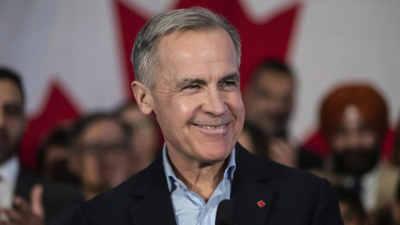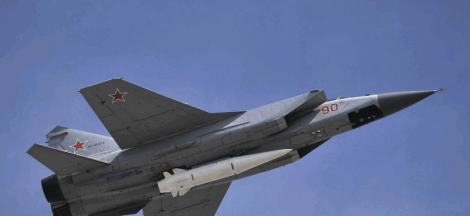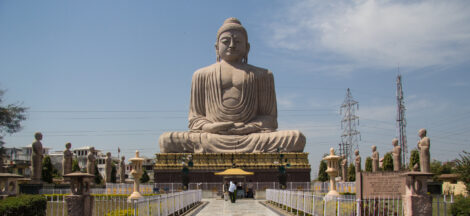Mark Carney’s victory in the Canadian federal elections and his swearing-in as Prime Minister has triggered cautious optimism about a potential reset in Canada-India relations, which had nosedived under Justin Trudeau’s leadership. Diplomatic circles are closely watching Carney’s initial moves as expectations build around a more pragmatic approach towards New Delhi, particularly after bilateral ties were severely strained by allegations made during Trudeau’s tenure.
The Canada-India relationship deteriorated sharply after Trudeau publicly suggested the involvement of the Indian government in the killing of Hardeep Singh Nijjar, a designated terrorist by India’s security agencies. The fallout from those allegations led to diplomatic expulsions, halted trade negotiations, and a freeze on high-level engagements. Carney, widely regarded for his measured and professional demeanour during his previous roles as Governor of the Bank of Canada and Bank of England, has indicated a shift towards repairing damaged international relationships, without explicitly referencing India in his public statements.
During his victory address, Carney stressed the importance of rebuilding Canada’s reputation as a reliable partner on the global stage. Although he refrained from naming specific countries, officials close to the matter have indicated that one of the administration’s early foreign policy priorities will be stabilising ties with India, recognising its pivotal role both as an economic partner and a key player in the Indo-Pacific strategy.
Carney’s leadership style is expected to contrast sharply with that of his predecessor, whose tenure was marked by persistent diplomatic tensions with New Delhi. Analysts believe Carney will seek to move away from emotionally charged rhetoric towards a more transactional and interest-driven engagement. His background in finance and diplomacy suggests a preference for dialogue over public posturing, a style that may resonate better with India’s current foreign policy establishment.
India’s External Affairs Ministry has maintained a cautious but open stance following the election outcome, refraining from direct commentary on Carney’s ascent but welcoming the prospect of a more respectful diplomatic discourse. Officials in New Delhi have privately conveyed that they will judge the new administration’s intentions based on actions rather than words, particularly in handling sensitive issues concerning diaspora politics and accusations that impact sovereignty.
The business community on both sides is also anticipating a thaw. Carney’s pro-trade and pro-investment outlook has raised hopes for the revival of Comprehensive Economic Partnership Agreement negotiations, which stalled amid the diplomatic row. Canadian pension funds and investment groups, which hold substantial stakes in Indian infrastructure and real estate projects, are quietly optimistic about a smoother environment for cross-border investment under Carney’s leadership.
There is a growing view among trade analysts that both countries have too much at stake economically to allow political tensions to dominate the relationship indefinitely. India’s rapidly expanding economy and Canada’s resource-driven sectors offer complementary strengths that could be harnessed through renewed cooperation. Strategic sectors like clean energy, critical minerals, technology, and higher education are likely to be areas of early focus if diplomatic normalisation proceeds as anticipated.
However, challenges remain. Carney will need to manage domestic political pressures, particularly from groups within Canada that have strong views on issues concerning India’s internal matters. Trudeau’s handling of the Sikh diaspora’s political activism drew criticism for allowing extremist elements to influence Canadian foreign policy to the detriment of broader bilateral ties. Whether Carney can recalibrate this domestic-international balance without alienating key voter bases will be an early test of his political acumen.
On the Indian side, there is a strong expectation that Canada must demonstrate tangible goodwill gestures before high-level engagement is resumed. Senior government officials have signalled that while India does not intend to escalate tensions further, it expects Canada to respect its core interests, particularly regarding national security and sovereignty. Moves such as rolling back travel advisories, resuming formal trade talks, and facilitating ministerial-level visits could serve as important confidence-building measures.
Diplomatic observers also note that Carney’s global reputation for sound judgment and bridge-building could help ease the distrust that took root under Trudeau. His ability to navigate complex negotiations during economic crises has drawn praise from international leaders, raising the possibility that he could approach India-Canada relations with the same methodical tact.
Beyond bilateral issues, broader geopolitical factors also favour a recalibration. Canada’s interests in the Indo-Pacific, where India plays a central role as a counterweight to China’s influence, have become increasingly strategic. Strengthening ties with India aligns with Ottawa’s aspirations to deepen its footprint in the region. For New Delhi, mending relations with Canada would remove an irritant in its broader foreign policy objectives, particularly as it seeks to consolidate partnerships with Western democracies.




 The Far-Right Origins Of Donald Trump’s Self-Deportations
The Far-Right Origins Of Donald Trump’s Self-Deportations 